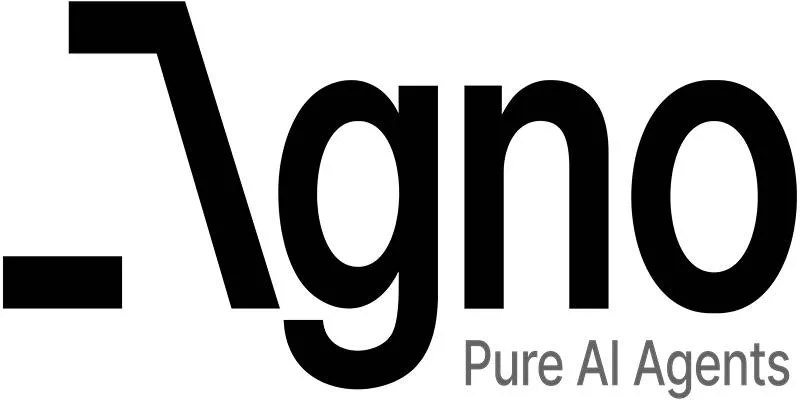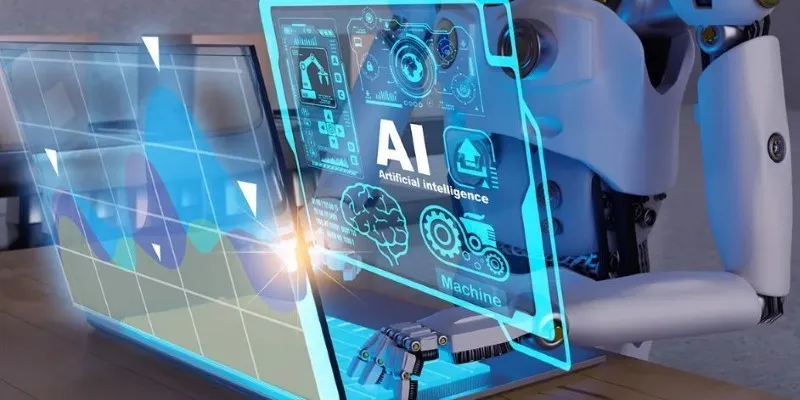Artificial Intelligence (AI) can be intimidating for many businesses due to its complexity. However, modular AI transforms this perception by breaking AI into manageable, functional pieces. This approach simplifies adoption, improves flexibility, and accelerates innovation. By understanding and using modular AI, enterprises can solve problems more effectively and build smarter, scalable systems to thrive in an evolving digital world.
What Is Modular AI?

Modular AI refers to artificial intelligence systems constructed from separate independent components known as modules. This solution enables AI implementation similar to a preconfigured system that businesses can effortlessly integrate. Each independent component performs a designated task, such as natural language processing (NLP), image recognition, or predictive analytics.
Businesses can tailor AI systems to their needs by using independent modules, which can operate alone or in conjunction with others. This modular approach provides enhanced flexibility, allowing businesses to develop customized ecosystems with independent components.
Key Features of Modular AI
- Interchangeable Components: Enterprises can add, remove, or replace individual modules to adapt to changing business requirements.
- Scalability: Modular systems grow with your enterprise, whether you’re scaling up or optimizing specific processes.
- Cost Efficiency: Businesses invest only in the modules they need, avoiding the higher costs of all-inclusive AI systems.
- Developer Freedom: Modular AI frameworks often allow developers to mix proprietary and open-source technologies.
Simplifying AI Integration
As AI technology advances, businesses of all sizes can benefit from its implementation. However, integrating AI poses a significant challenge due to the complexity and resources required. Traditional AI systems often demand significant investments in expertise and resources to integrate into existing operations.
Modular AI solutions address this challenge by breaking down large AI systems into smaller, interconnected modules. This approach allows businesses to integrate these components into existing processes with ease, eliminating the need for large-scale changes. Even small businesses with limited resources can adopt and benefit from AI technology.
Applications of Modular AI Across Business Functions
1. Enhancing Customer Service
Delivering exceptional customer experiences is critical for any enterprise, and AI is a valuable tool in achieving this. Modular AI platforms allow businesses to merge solutions to create optimal customer service systems tailored to their needs.
- Chatbots and Virtual Assistants: AI-powered chatbots equipped with NLP modules can handle customer inquiries, resolve complaints, and intelligently route support tickets. Pairing with sentiment analysis modules enhances customer understanding.
- Personalized Support: Combine predictive analytics modules with CRM systems to anticipate customer needs and deliver personalized solutions.
2. Revolutionizing Human Resources
Recruitment, training, and employee engagement are complex processes for enterprises. Modular AI simplifies them by connecting individual functions.
- Streamlined Hiring Processes: AI recruitment modules can efficiently screen resumes, schedule interviews, and assess candidates’ skills.
- Employee Retention: Use predictive algorithms with sentiment-analysis tools to identify team members needing support, preventing burnout.
3. Supercharging Data Analytics
Data is the backbone of decision-making in enterprises, but analyzing vast amounts of data isn’t easy without AI. Modular AI enables companies to layer multiple analytics tools for deeper insights.
- Automated Insights: A data-cleaning module paired with a machine-learning analytics module ensures organizations not only analyze large datasets but also generate actionable insights.
- Cross-System Integration: By linking AI analytics with other enterprise software, such as Enterprise Resource Planning (ERP) systems, modular solutions create cohesive dashboards offering real-time updates.
4. Streamlining Supply Chains
The supply chain landscape is fraught with volatility. Modular AI gives enterprises the agility to manage logistical challenges effectively.
- Demand Forecasting: Use predictive analytics modules to anticipate inventory needs and avoid supply shortages.
- Quality Control: Image recognition modules can automate the inspection of goods, improving overall product quality.
5. Modernizing Marketing Campaigns
Marketing is increasingly data-driven, and modular AI tools meet this demand head-on.
- Advanced Customer Segmentation: AI modules for customer behavior analysis can group target audiences based on shared characteristics for hyper-personalized campaigns.
- Content Creation: NLP-based tools generate ad copy, blog posts, and social media content aligned with customer needs.
Why Modular AI Is the Future of Enterprise Technology
The shift to modular AI isn’t just a trend; it’s a necessity. Enterprises face increasingly dynamic challenges, making rigid AI solutions inadequate. Modular AI empowers organizations to remain agile in rapidly changing business environments.
1. Customization for Unique Needs
No two enterprises operate identically, and modular AI accounts for that. By allowing companies to customize AI systems, they create solutions that address specific pain points rather than taking a “one-size-fits-all” approach.
2. Accelerated Innovation
The component-based nature of modular AI fosters faster innovation. Businesses don’t have to wait for entire systems to evolve—they can integrate new modules whenever cutting-edge features become available.
3. Lower Risk and Cost of Implementation
Enterprises can pilot individual modules before committing to a full-scale AI transformation, reducing up-front costs and risks.
4. Democratization of AI Access
Modular AI lowers the barrier to AI adoption for smaller enterprises by offering scalable, cost-effective entry points that grow alongside the company.
How to Get Started with Modular AI

- Identify Your Needs: Conduct an internal assessment to identify processes that could benefit most from AI.
- Choose Scalable Solutions: Look for AI providers offering modular solutions that can grow and adapt to your changing needs.
- Start Small: Pilot one or two modules to test ROI before integrating more tools across your organization.
- Focus on Integration: Ensure that your selected modules can easily integrate with existing systems like CRM, ERP, or HR platforms.
- Partner with Experts: Collaborate with AI consultants or service providers experienced in implementing modular solutions at an enterprise scale.
Conclusion
Adopting modular AI solutions allows organizations to stay agile and innovative in an increasingly dynamic business environment. By starting small, prioritizing integration, and collaborating with experienced partners, companies can unlock the full potential of AI while minimizing risks. Modular AI not only provides the flexibility to address current needs but also ensures scalability to tackle future challenges.
 zfn9
zfn9






















